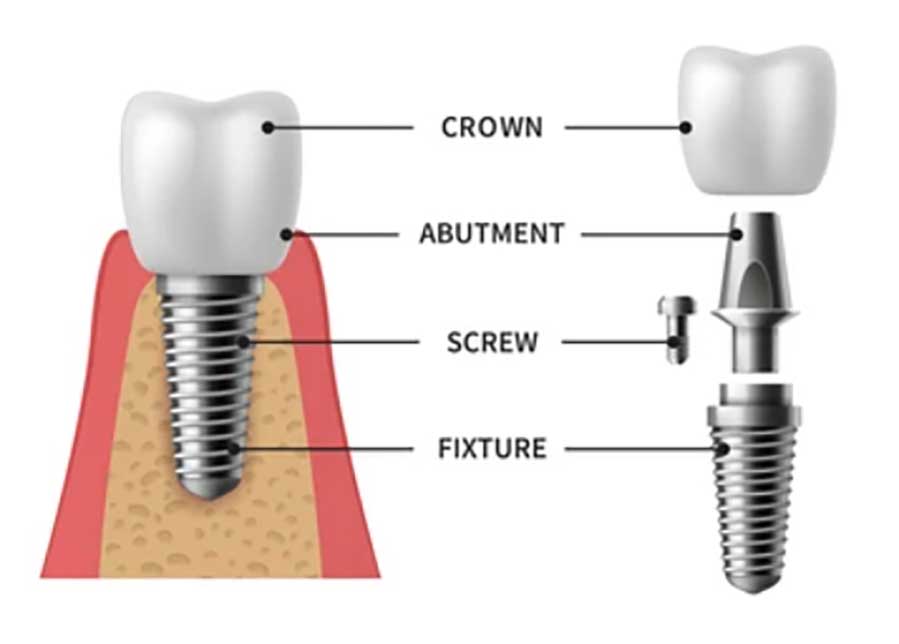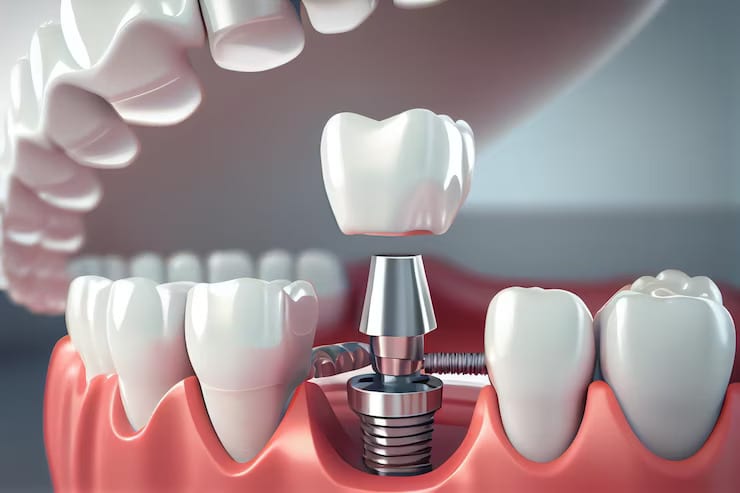Orthodontics Alexandria OH Dental Implant Surgery
Orthodontics Alexandria OH Dental Implant Surgery
Blog Article
Orthodontics Pataskala OH Frequently Asked Questions About Dental Implants
Dental implants have emerged as a preferred choice for people in search of a long-term solution to tooth loss. One essential side of understanding dental implants entails their impact on adjacent teeth. This is especially important for guaranteeing the health and longevity of the complete dental structure.
When a dental implant is positioned, it mimics the function of a natural tooth root. By doing so, it helps preserve the integrity of the encompassing bone structure. Natural teeth depend on a balanced, interconnected system for assist, and dental implants can contribute positively to that dynamic. The stability provided by the implant allows for higher distribution of chunk forces, which may prevent undue stress on adjacent teeth.
Pediatric Dentist Galena OH The Benefits of Dental Implants: Why Choose Them?
In circumstances where a tooth is missing, the neighboring teeth might shift into the vacant space. This shifting can result in misalignment and various other problems. By placing a dental implant, the chance of this shifting is decreased, as the implant acts as a placeholder that preserves the natural alignment of surrounding teeth. This preventive impact is essential for long-term oral health and performance.
Another essential consideration is bone loss. When a tooth is lost, the jawbone within the space can begin to deteriorate as a result of an absence of stimulation. Dental implants assist prevent this bone loss by offering the necessary stimulation to the jawbone, much like a natural tooth root would. This preservation of bone not solely supports the implant itself but in addition contributes to the steadiness of adjacent teeth.
The type of material used in dental implants, typically titanium, has a unique property of osseointegration, meaning it fuses with the bone over time. This integration provides a sturdy basis for the bogus tooth whereas guaranteeing that the implant doesn’t negatively have an result on surrounding constructions. As the implant integrates, it creates an setting that contributes positively to the health of the adjacent teeth.

Regular dental check-ups play an essential position in monitoring the impact of dental implants on adjacent teeth. Professional assessments can help determine any points that may arise, guaranteeing prompt treatment and sustaining the health of the entire dental arch. These evaluations might embrace X-rays to examine for bone density and the general condition of the implant and surrounding teeth.
Mono Dental Implants Granville OH Understanding the Cost of Dental Implants (2024 Edition)
Oral hygiene practices are very important for people with dental implants. Proper brushing and flossing habits not only contribute to the longevity of the implant but additionally be positive that adjacent teeth stay healthy. Food particles and plaque that accumulate around the implant could cause problems, together with peri-implantitis, an inflammatory condition that can have an result on surrounding teeth and tissues.
The positioning of dental implants can influence the health of adjacent teeth. If an implant is positioned at an angle or not properly aligned, it may result in elevated strain on neighboring teeth. This misalignment could trigger wear and tear on adjacent enamel, potentially resulting in cavities or other dental issues. Therefore, the ability and experience of the dentist performing the implant procedure are paramount in reaching a profitable outcome.
In some instances, extra procedures may be needed to prepare the surrounding space for an implant. Bone grafting or sinus lifts might help create a better setting for the implant. While these procedures are geared toward enhancing the location for the implant, additionally they serve to guard the health of adjacent teeth by making a more steady foundation.
Premier Dental Alexandria OH Frequently Asked Questions About Dental Implants

As dental know-how evolves, developments in implant methods lead to higher outcomes. Improved imaging techniques and computer-aided design enable for more exact placements that reduce risk to adjacent teeth. With these developments, the probability of issues that might arise from improperly positioned implants diminishes significantly.
Post-operative care additionally plays a important role in guaranteeing that adjacent teeth remain unaffected. Patients should adhere to the dentist's instructions concerning diet, oral hygiene, and follow-up visits. Neglecting these pointers could result in complications that influence not solely the implant but in addition the neighboring teeth.
Dentists Hartford OH Types of Dental Implants
In conclusion, dental implants, when placed correctly and cared for properly, have the potential to enhance the health of adjacent teeth rather than detract from it. They maintain alignment, stimulate bone growth, and provide a safe basis that helps the complete dental structure. Understanding how dental implants affect adjacent teeth emphasizes their significance as a long-term tooth replacement answer. With steady advancements in technology and techniques, the integration of dental implants into restorative dentistry is becoming more and more profitable, making certain wholesome and useful smiles for years to return.

- Dental implants prevent adjacent teeth from shifting into the gap created by a missing tooth, serving to to take care of correct alignment within the mouth.
- The rebuilding of the jawbone through an implant can stimulate surrounding teeth and hold them healthy by offering needed bone density that may otherwise diminish.
- Adjacent teeth benefit from the stabilization that dental implants provide, decreasing the chance of wear and tear from misalignment during chewing.
- Implants can shield adjacent teeth by appearing as a framework, which might distribute chunk forces evenly across the dental arch instead of putting undue stress on neighboring teeth.
- When positioned accurately, dental implants decrease the chance of gum disease which might have an effect on adjacent teeth by maintaining a clean and healthy gum line.
- The presence of an implant can facilitate an improved oral hygiene routine, as it eliminates the need for bridgework that would lure food particles around adjacent teeth.
- Regular dental check-ups can reveal how properly the implant integrates with surrounding buildings, making certain ongoing health for adjacent teeth.
- Implants can prevent the natural means of bone resorption that happens after tooth loss, positively impacting the soundness and longevity of adjacent teeth.
- The use of dental implants would possibly cut back the need for extra invasive procedures sooner or later, offering a long-term answer that maintains the structure of the whole dental arch.
- Successful integration of an implant into the dental arch enhances general oral perform, typically resulting in improved confidence and oral health for adjacent teeth.undefinedHow do dental implants have an effect on adjacent teeth?
What impact do dental implants have on the alignment of adjacent teeth?
Dental implants generally prevent the shifting of adjacent teeth, serving to to maintain proper alignment. This stability can cut back the chance of creating chew issues over time.
Can dental implants cause injury to nearby teeth?
When placed appropriately by a qualified skilled, dental implants should not damage adjacent teeth - Dental Care Pataskala OH. However, improper placement or insufficient planning might lead to issues
Dentists Pataskala OH Dental Implants: Services and Expertise
Do dental implants require any special care regarding adjacent teeth?
Maintaining good oral hygiene is essential. Surrounding teeth must be brushed and flossed often, and routine dental check-ups will assist be positive that both the implants and adjacent teeth stay wholesome.

Will dental implants impression the health of my surrounding teeth?
Dental implants can enhance the health of surrounding teeth by distributing bite forces evenly, reducing wear and tear. Additionally, they will prevent bone loss within the jaw, which might affect adjacent teeth.
Dentist Office Alexandria OH Understanding the Cost of Dental Implants (2024 Edition)
Are there any long-term effects of Dental Implants Condit OH dental implants on nearby teeth?
Long-term, dental implants may help preserve the health of adjacent teeth by preventing shifting and potential gum points, finally contributing to better oral health total. - Mono Implants Alexandria OH
Can gum problems come up around adjacent teeth after getting implants?
If correct dental care is uncared for, gum issues might develop around each the implants and adjacent teeth. Following post-operative care instructions is crucial to minimize these risks.
Orthodontics Condit OH Understanding Dental Implants: A Comprehensive Guide
How do dental implants examine to bridges when it comes a fantastic read to adjacent teeth?
Dental implants are usually helpful as they don’t require alteration of adjacent teeth, in contrast to bridges, which necessitate reshaping of nearby teeth for support. (Family Dental Clinic Hartford OH)
Can I still get cavities in adjacent teeth my explanation if I truly have dental implants?
Yes, adjacent teeth can still develop cavities if not properly cared for. Dental implants themselves cannot get cavities, but they require vigilant hygiene practices to protect surrounding natural teeth.
What is the success rate of dental implants in relation to surrounding teeth?
The success rate of dental implants is high, but it largely is determined by the standard of the process and ongoing care. Well-maintained implants usually result in higher outcomes for adjacent teeth as properly.